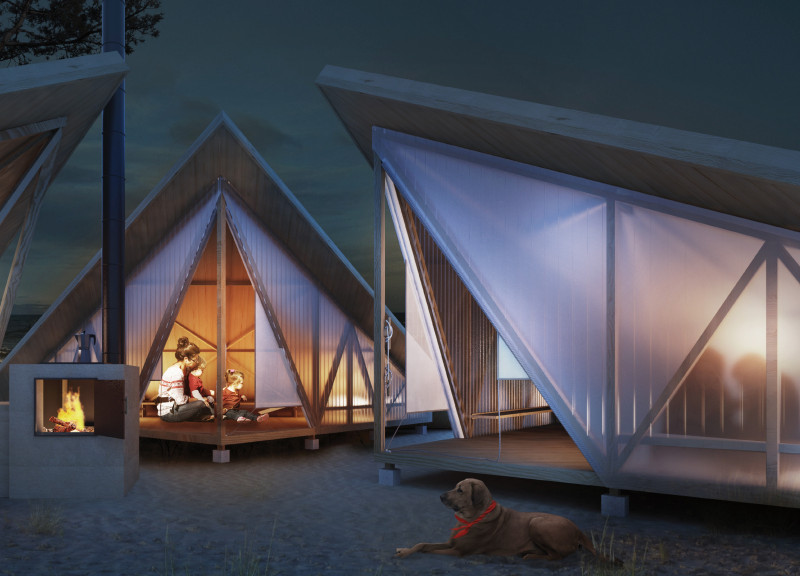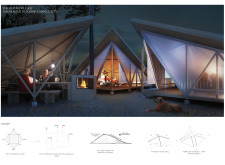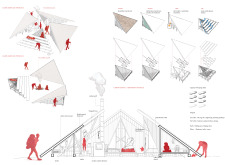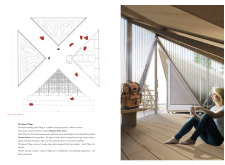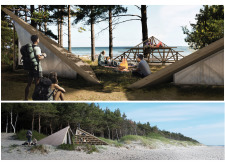5 key facts about this project
## Overview of Repose Village
Repose Village is situated along the Amber Road Tracking in Latvia, designed to provide a contemporary camping experience that emphasizes a connection with the natural environment. The architectural concept draws upon the four classical elements—Earth, Water, Air, and Fire—integrating them into distinct functional modules that reflect the characteristics of the Latvian landscape, particularly its sandy beaches and varied natural topography.
### Spatial Organization and Geometry
The layout features cabins constructed in the form of triangular prisms, promoting both cohesion and visual dynamism within the setting. The angles and contours of each cabin are thoughtfully aligned with the surrounding sand dunes, fostering an interaction between the built environment and nature. This arrangement allows for communal gatherings while simultaneously offering privacy to occupants. Open-plan designs enhance the versatility of the interiors, accommodating diverse activities and group dynamics.
### Material Selection and Sustainability
Material choices are integral to the project’s ethos, reinforcing its commitment to sustainability and environmental integration. Timber serves as the primary structural component, providing warmth and an eco-friendly profile. The use of polycarbonate panels enhances natural light diffusion while creating transparency between the interior and exterior spaces. Sand is incorporated into various surfaces to deepen the connection to the local landscape, while concrete ensures durability in foundational elements. This combination aims to minimize the ecological footprint and underscores a design that prioritizes sustainable practices while maintaining structural integrity.


